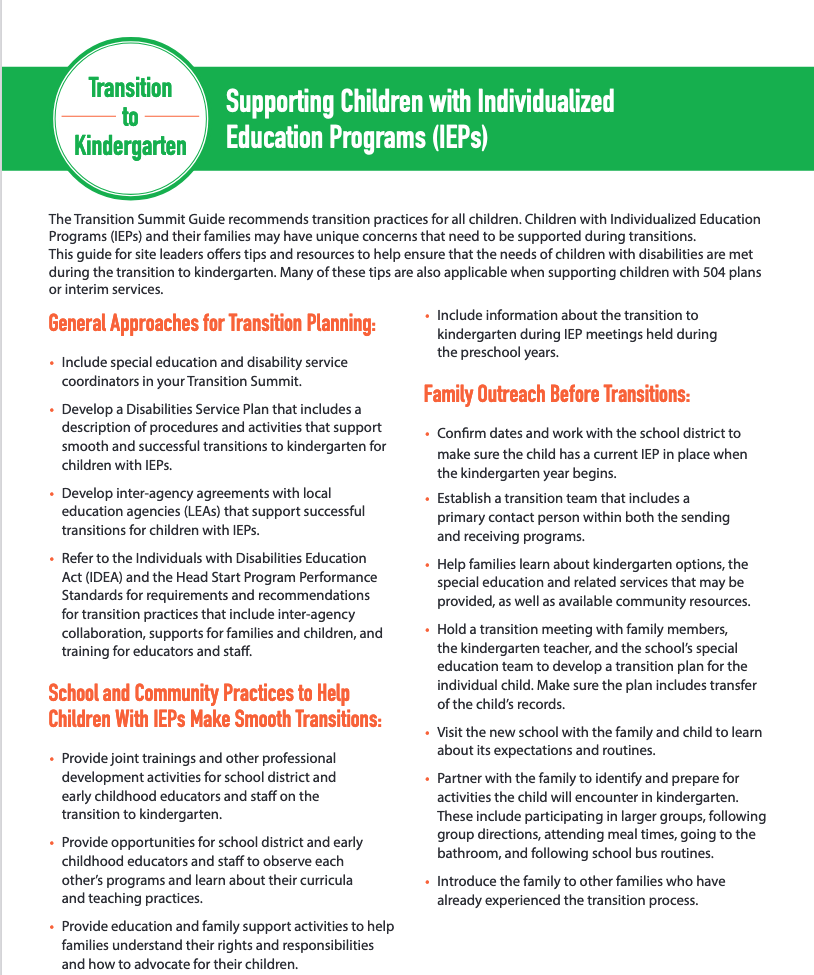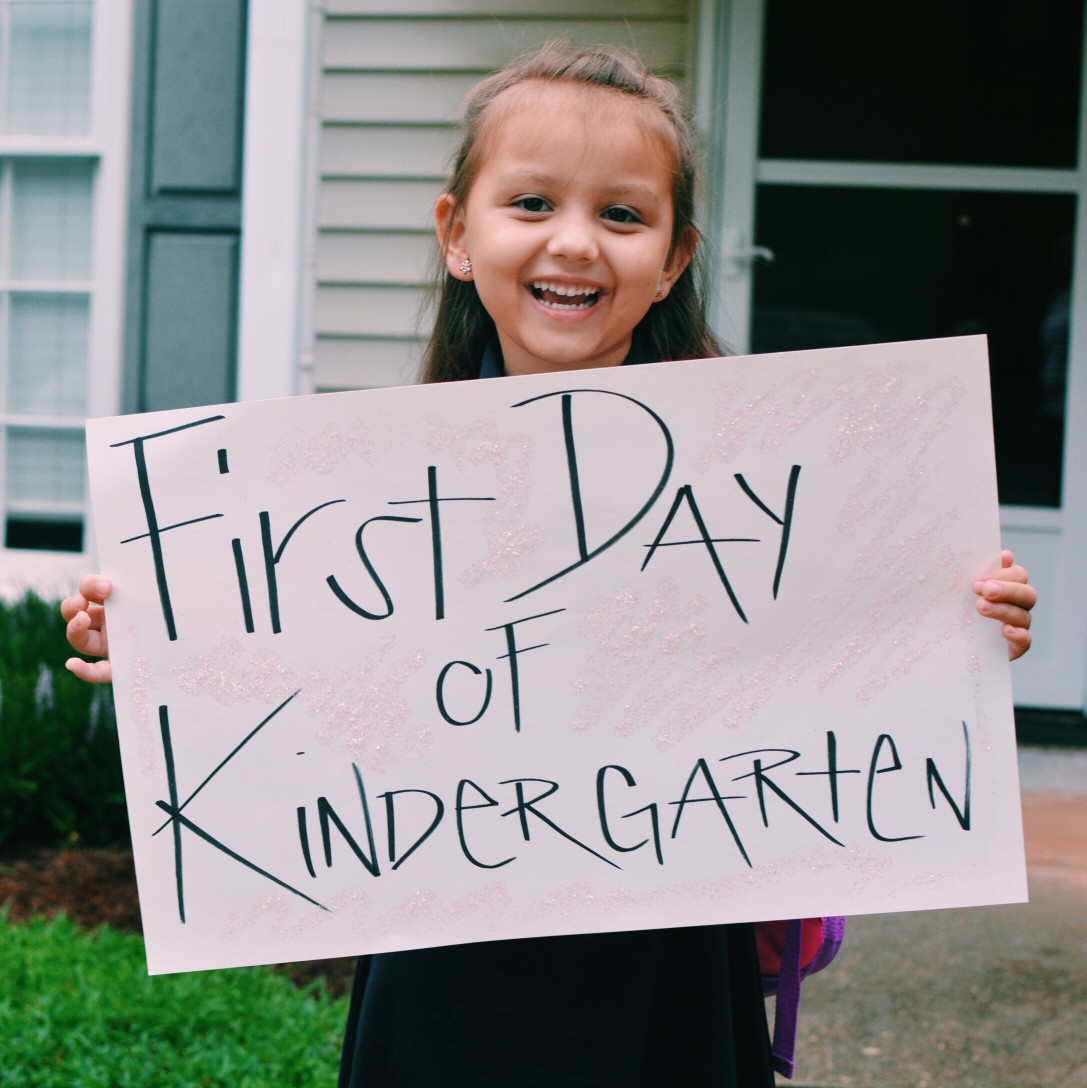Transition to Kindergarten: Supporting Children with Individualized Education Programs [downloadable]
 As programs support all children during the transition to kindergarten, it’s key to prepare children with Individualized Education Programs (IEPs) and their families. Use these tips and resources to ensure that children with disabilities have a smooth transition and educators who receive them feel fully prepared to support their success in school.
As programs support all children during the transition to kindergarten, it’s key to prepare children with Individualized Education Programs (IEPs) and their families. Use these tips and resources to ensure that children with disabilities have a smooth transition and educators who receive them feel fully prepared to support their success in school.
Children with Individualized Education Programs (IEPs) and their families may have unique concerns that need to be supported during this critical period. Find tips and resources site leaders can use to help ensure the needs of children with disabilities are met during the transition to kindergarten. Many of these tips are also applicable when supporting children with 504 Plans or interim services.
General Approaches for Transition Planning
- Include special education and disability service coordinators in your Transition Summit.
- Develop a disabilities service plan that includes a description of procedures and activities that support smooth and successful transitions to kindergarten for children with IEPs.
- Develop interagency agreements with local education agencies (LEAs) that support successful transitions for children with IEPs.
- Refer to the Individuals with Disabilities Education Act (IDEA) and the Head Start Program Performance Standards for requirements and recommendations for transition practices that include interagency collaboration, supports for families and children, and training for educators and staff.
School and Community Practices to Help Children with IEPs Make Smooth Transitions
- Provide joint trainings and other professional development activities for school district and early childhood educators and staff on the transition to kindergarten.
- Offer opportunities for school district and early childhood educators and staff to observe each other’s programs and learn about their curricula and teaching practices.
- Provide education and family support activities to help families understand their rights and responsibilities and how to advocate for their children.
- Include information about the transition to kindergarten during IEP meetings held during the preschool years.
Family Outreach Before Transitions
- Confirm dates and work with the school district to make sure the child has a current IEP in place when the kindergarten year begins.
- Establish a transition team that includes a primary contact person within both the sending and receiving programs.
- Help families learn about kindergarten options, special education and related services that may be provided, as well as available community resources.
- Hold a transition meeting with family members, the kindergarten teacher, and the school’s special education team to develop a transition plan for the individual child. Make sure the plan includes transfer of the child’s records.
- Visit the new school with the family and child to learn about its expectations and routines.
- Partner with the family to identify and prepare for activities the child will encounter in kindergarten. These include participating in larger groups, following group directions, attending mealtimes, going to the bathroom, and following school bus routines.
- Introduce the family to other families who have already experienced the transition process.
Family Outreach During Transitions
- Discuss with the family and the kindergarten teacher strategies and modifications that can help the child feel safe and welcomed during the first weeks of school.
- Help families and the kindergarten teacher establish a system to communicate about the child’s adjustment to the new school.
- Check to see whether the child’s records have been transferred to the new school.
- Partner with the family to make an “Introducing Me” book to share with the new teacher.
- Help family members advocate for their child’s specific needs.
Family Outreach After Transitions
- Follow up with the family and the kindergarten teacher to let them know you are interested in the child’s continued progress.
- Introduce the family to community resources that are available for families of children with IEPs.
Download a PDF of Supporting Children with Individualized Education Programs.

Find more resources in Head Start’s online Early Childhood Learning & Knowledge Center (ECLKC).
Source: U.S. Department of Health & Human Services, Head Start Early Childhood Learning & Knowledge Center | Supporting Children with Individualized Education Programs, https://eclkc.ohs.acf.hhs.gov/publication/supporting-children-individualized-education-programs-ieps | public domain. Last updated July 2020.
Do you need someone to talk to? To schedule an evaluation or to get advice about your child’s challenges, call or email a CHC Care Coordinator at 650.688.3625 or careteam@chconline.org CHC teletherapy services are available now.





